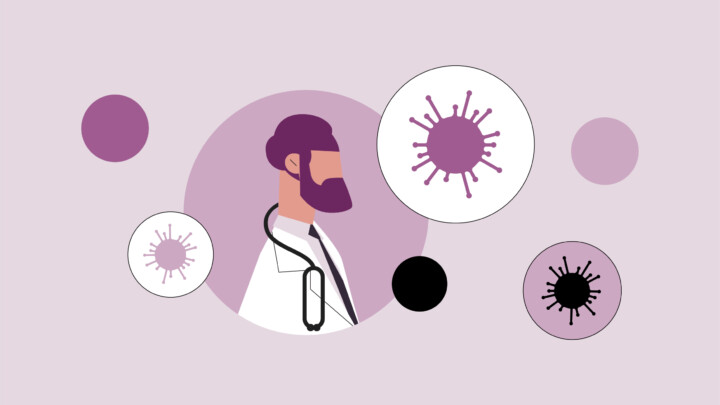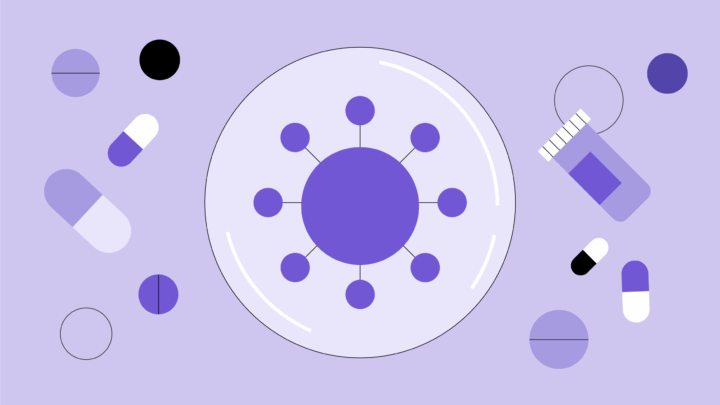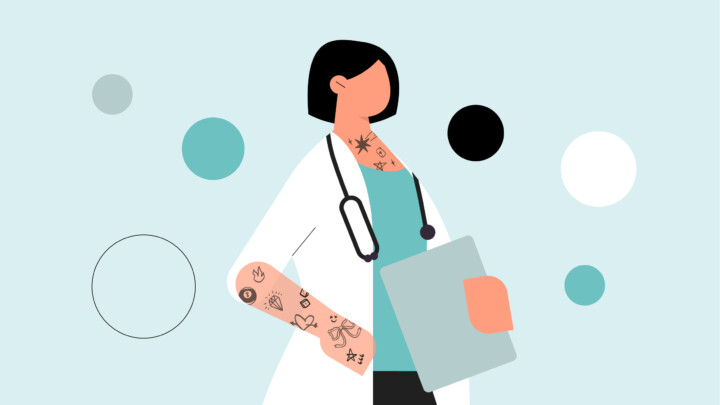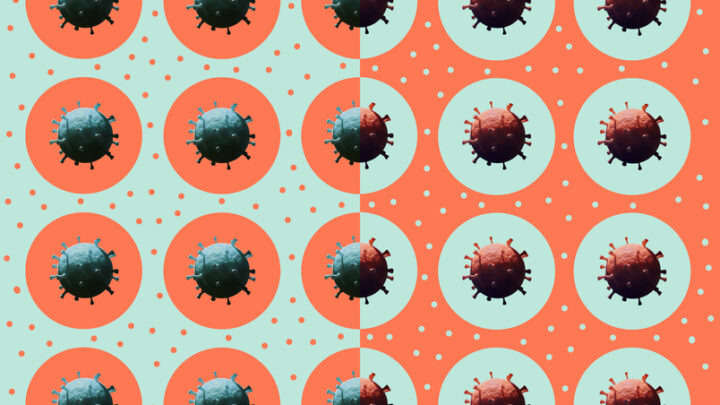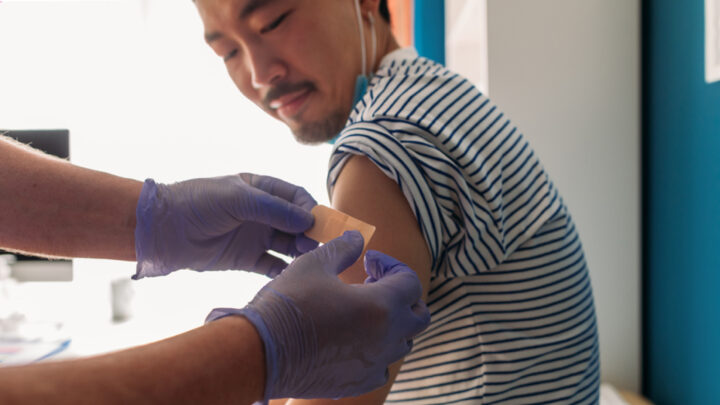
Before 2020, the infectious disease specialty often operated behind the scenes – consulting on complex cases, managing antimicrobial resistance, and guiding vaccination and outbreak protocols. But the emergence of COVID-19 shifted the perception of ID physicians from specialized consultants to frontline leaders and trusted public health voices. Suddenly, their knowledge spread beyond the hospital ward and into policy discussions, public communication, and overall response strategies.
COVID-19 as a disease is here to stay alongside old “classics” such as influenza and measles, and infectious disease doctors not only have to treat the disease, but also deal with the social environment surrounding it. They often have to apply empathy not just to patients but to the general population. Infectious disease is associated with internal medicine, and most infectious disease specialists start training in that field.
What do infectious disease physicians do?
Infectious disease physicians play a role in diagnosing, investigating, and treating infections. Many infections, such as colds, don’t require the attention of a specialist. Others, however, do.
For the most part, these specialists deal with inpatients in large or specialist hospitals. They treat patients with severe infections such as pneumonia, HIV, viral hepatitis, bone infections, and others. They might also deal with travel-based infections such as cholera or malaria, that is, with diseases that are not common in that area but are often brought in from international travelers. Or, they might deal with outbreaks of diseases not generally considered endemic in an area, such as measles in the United States or, rarest of all – with novel diseases such as COVID-19 or various forms of zoonotic influenza.
According to an orthopedist on Sermo, “The study of infectious diseases requires a multidisciplinary approach in which it is necessary to integrate molecular biology, immunology, and cell biology.”
Infectious disease doctors typically work with a care team to provide patient-centered care. This team includes nurses and other specialists, and they may be called in by other doctors to diagnose a rare or complex infection, interpret laboratory tests, or treat difficult infections such as antibiotic-resistant bacteria.
They also provide long-term care for chronic infections like HIV and hepatitis and may also consult on infection control in healthcare settings. Finally, they may be involved in research to help develop new vaccines, antibiotics, and other treatments for infectious diseases.
Another thing to consider for young doctors going into this specialty is this comment from an infectious disease specialist, “Infectious disease is a very beautiful, interesting and comprehensive specialty. Despite the fact that infectious diseases continue to constitute a health problem, fewer and fewer doctors decide on this specialty.” This hints that demand for infectious disease specialists may, at least in some places, be outpacing supply. According to a Sermo poll, doctors are not choosing the specialty because of lower pay (25%), heavy workload (21%), burnout from COVID-19 (21%), and long hours (19%).
The importance of ID specialists during the COVID-19 pandemic
COVID-19 was a perfect storm of a pandemic virus…highly contagious, a long incubation period, and relatively low virulence that left many infectious people only mildly sick or asymptomatic. Controlling the pandemic and creating a vaccine required unprecedented degrees of international and interdisciplinary cooperation. Many infectious disease specialists faced a high risk of infection, with one in five being infected in 2020 alone. At the same time, they helped develop a vaccine in record time. Per a pediatrician on Sermo, “They worked so well and bravely during the COVID pandemic and many others, giving support and teaching all of us!”
Infectious disease doctors also played a key role in developing infection control protocols, such as encouraging the use of masks. And it could happen again – 42% of doctors who took our survey on Sermo think that it is somewhat likely there will be a major global pandemic within five years, and 23% think it is highly likely. Despite this, few younger physicians are going into infectious disease, and 61% of Sermo members are not surprised by this.
The role of infectious disease specialists in preventing another pandemic
Given the potential for another pandemic, infectious disease doctors have a role to play. In fact, one family doctor on Sermo says, “I believe that more than being harmed, the pandemic highlighted the importance of infectious diseases doctors.”
The WHO develops global strategies that focus on things like preparing for pandemic influenza as well as eliminating yellow fever and cholera. One of the big pandemic concerns right now is highly pathogenic avian influenza, which is already producing an epidemic in cows and could easily cross over into humans, resulting in a pandemic.
Infectious disease specialists work in these various initiatives, but they also have a major role to play in educating and preparing not just their patients but the general public and even physicians in other specialties. They can help with R&D and the design of disease surveillance strategies.
Another key role, sadly often underfunded, is dealing with pandemic-potential diseases. For example, Ebola only gets funding and attention when there is an outbreak, when it is, in fact, between outbreaks that important work needs to be done. In general, according to an American GP, “Certainly we do not have enough specialists in infectious diseases and, contradictory to this, infectious diseases are increasing every year with epidemics that appear to be re-sprouting or emerging and others that appear new, such as COVID-19.”
They also need to look at factors that can impact future pandemics. Sermo members point to increased global travel as the biggest contributing factor to pandemic risk and to enhanced surveillance as the most critical preparedness measure. Doctors can mitigate the risk of global travel by educating patients on disease prevention and encouraging pre-trip vaccinations.

How pandemics spread
Pandemics spread when a disease enters a population that has, for whatever reason, no or limited resistance. When a disease moves or is transported into an area in which it is not regularly occuring, you can get an epidemic if the disease is generally endemic (this typically happens if a disease finds its way to an island) or a pandemic if the disease was endemic to a single area. An epidemic is a severe outbreak constrained to a single area, while a pandemic is an outbreak that covers all or most of a continent or the planet.
Wide-scale pandemics, however, are often caused by a novel virus, typically zoonotic in origin. COVID-19 most likely came from bats. H1N1, the virus that caused the 1918 flu pandemic, came from birds. When a virus jumps species, the new host species has no immune memory of it, although some individuals might be protected by exposure to similar viruses. This can easily cause a major outbreak.
Pandemics then spread primarily through travel. The “Russian flu” (now believed by some experts to be a coronavirus) traveled along the railway through Europe, infecting and killing on its way. COVID-19 spread as quickly as it did because of modern air travel. Without mitigation, a pandemic can burn through the entire population, infecting anyone who is not somehow resistant (through genetics or similar exposure) and then either burning out or evolving into new variants and creating waves of infection and disease that eventually subside.
Bacteria and fungi can also potentially cause pandemics. 89% of Sermo members think we urgently need more infectious disease specialists to prevent future pandemics, which may come from an unexpected source.
How to become an infectious disease Doctor
Becoming an infectious disease specialist is one possible route for new doctors or those seeking a new specialty. Once a doctor has qualified with their MD, they will need to apply to a residency program. In most places, they need to start with either an internal medicine or pediatric residency for three years, depending on whether they want to treat adults or children. Some schools may have other options, such as medical microbiology or medical virology, for a more science-based approach.
They will then pass their boards and complete an infectious disease fellowship and pass a second set of boards, typical of all specialists.
In medical school, young doctors can take appropriate electives to help support their career path. ID specialists face a challenging course of study and work long hours, and this can only get worse with few people going into the specialty. The fact that it is selected less, however, may prove to be an opportunity. 25% of Sermo physicians think that lower pay is why physicians don’t go into this specialty. This is understandable – infectious disease pays less than OB/GYN or psychiatry, and pediatric infectious disease specialists are typically paid less than family doctors. Most specialists also need to do regular continuing medical education in their field.
A hospitalist in the U.S. cautions, “As a hospitalist I make more than the two ID services at our medical center. The fellowship sees long hours that donʼt get much better if going into a private or non-academic/teaching practice”.
Doctors typically choose this specialty because they are interested in public health and research, and it often comes with opportunities to travel, work, and research in a variety of locations. Others may choose it because of the high demand and the perception that it might be easier to find a good position.
One infectious disease specialist in the US holds the opinion that “The joys of infectious diseases work include hugely grateful patients and families, some grateful hospital systems which appreciate serving their communities and public health, exciting advances in laboratory diagnostics, and working with always changing, never dull emerging infections.”
However, a GP points out, “The heavy overload with less pay as compared to other specialties has caused more harm to infectious disease department thereby scaring away new doctors from coming to the department.”
ID physicians play a key role in preventing future pandemics and epidemics, as well as diagnosing and treating people with rare and/or chronic infections. While infectious disease specialists may face lower compensation and demanding hours compared to other fields, many are drawn to the specialty for its alignment with public health, global impact, and evolving medical challenges. Some pursue ID for its career flexibility and strong job demand. Despite the trade-offs, physicians often find fulfilment in making a meaningful difference, working with appreciative patients, and engaging with constantly evolving medical cases.
